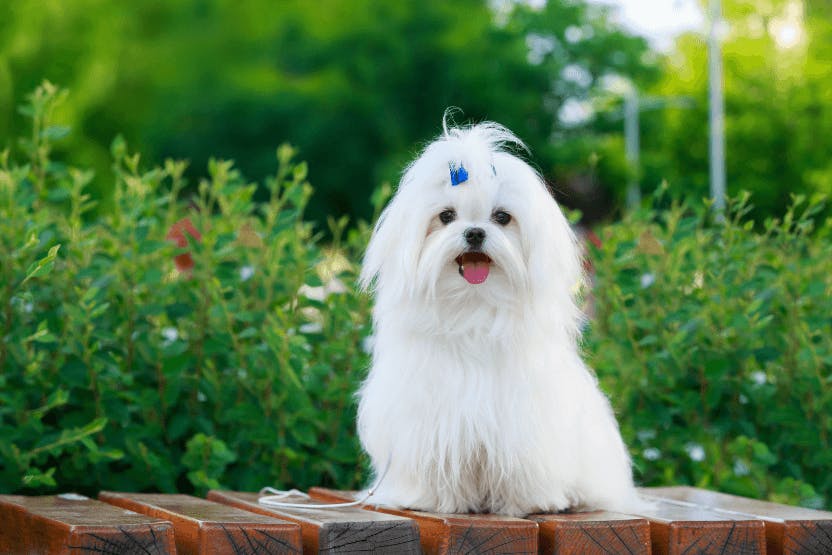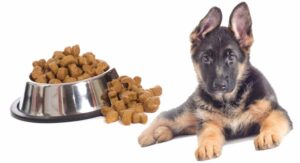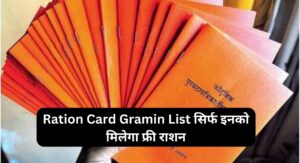Finding The Best Dog Food for Maltese: A Complete Guide 2025 Maltese dogs, known for their flowing white coats and charming personalities, are among the most adored toy breeds. To keep your Maltese happy, healthy, and full of energy, providing the right nutrition is essential. Their small size and unique needs require a diet that is both balanced and tailored to their specific requirements. In this guide, we will explore the best dog food options for Maltese dogs and what to consider when choosing the perfect meal for your furry companion.

Understanding the Nutritional Needs of Maltese Dogs 2025
Maltese dogs have unique nutritional requirements due to their small size, long lifespan, and susceptibility to specific health issues. Here are the key factors to consider:
1. Calorie Requirements
Maltese dogs are small breeds that usually weigh between 4 to 7 pounds. Due to their high energy levels, it is essential for them to have a calorie-dense diet that meets their nutritional needs and helps maintain their vitality. However, pet owners should be cautious, as overfeeding these little dogs can lead to obesity quite quickly, which can cause various health issues. Therefore, it is important to ensure that their meals are carefully measured and that treats are given in moderation to keep them healthy and energetic.
2. Protein Needs
High-quality protein plays a crucial role in sustaining lean muscle mass and ensuring overall health for your dog. It is important to select dog foods that contain specifically named animal proteins, which include options such as chicken, turkey, lamb, or fish, as these should be listed as the primary ingredient. By prioritizing these sources of protein, you can help support your dog’s strength and vitality, making sure they receive the essential nutrients needed for their well-being and physical condition.
3. Fat Content
Healthy fats play a crucial role in providing necessary fatty acids that are essential for the overall well-being of the Maltese breed. These fats contribute significantly to maintaining and enhancing the Maltese’s luxurious and beautiful coat, ensuring it remains shiny and healthy. Among the various types of fatty acids, Omega-3 and Omega-6 fatty acids stand out as particularly beneficial. These specific fatty acids offer numerous advantages, supporting not only the coat’s quality but also the overall health of the Maltese.
4. Carbohydrate
It is important to ensure that carbohydrates are sourced from easily digestible and nutritious options such as sweet potatoes, brown rice, and oats. These foods provide not only the energy you need but also essential nutrients that support overall health. It’s best to steer clear of products that contain a high amount of fillers or are made with low-quality grains, as these can lead to poor digestion and may not offer the necessary health benefits. By choosing the right carbohydrate sources, you can promote better digestive health and overall well-being.
5. Vitamins and Minerals
Make certain that the food you consume is rich in essential vitamins and minerals that are crucial not only for maintaining strong bone health but also for providing adequate immune support. Additionally, these nutrients play a significant role in promoting overall well-being, ensuring that your body functions optimally and remains healthy.
6. Allergy Considerations
Maltese dogs may have a tendency to develop food sensitivities or allergies, which can cause various health issues. Among the most common allergens that affect these dogs are ingredients such as corn, wheat, and soy, along with artificial additives that are often found in processed dog foods. It is important for dog owners to be aware of these potential triggers to ensure the well-being of their pets.
Common Health Issues in Maltese and Their Dietary Solutions
1. Dental Problems
Maltese are prone to dental problems such as plaque buildup and gum disease due to their small jaws. Feeding them dry kibble or dental treats can help maintain their dental health.
2. Sensitive Stomachs
Many Maltese have sensitive digestive systems, and limited-ingredient diets or probiotics can help.
3. Luxating Patella
Maltese require joint health support, so choose dog foods fortified with glucosamine and chondroitin.
4. Coat and Skin Health
Their long, silky coats need sufficient fatty acids and proteins for health and shine. Avoid foods with artificial colors or preservatives, as they may irritate the skin.
Top Dog Food Recommendations for Maltese
1. Royal Canin Maltese Adult Dry Dog Food
Why It’s Great:
- Specifically formulated for adult Maltese dogs.
- Unique kibble shape designed for small jaws.
- Supports healthy skin and a shiny coat with biotin and Omega-3 fatty acids.
- Helps reduce stool odor with highly digestible proteins.
Cons:
- Pricier than some other options.
- Contains grains, which may not suit all dogs.
2. Blue Buffalo Life Protection Small Breed Formula
Why It’s Great:
- Features real chicken or lamb as the first ingredient.
- Includes LifeSource Bits™: a precise blend of antioxidants, vitamins, and minerals.
- Grain-free options are available for dogs with sensitivities.
- Small kibble size perfect for Maltese mouths.
Cons:
- Some dogs may not like the taste of the Life Source Bits.
3. Wellness CORE RawRev Small Breed
Why It’s Great:
- High-protein formula with freeze-dried raw meat for a boost of flavor and nutrition.
- Grain-free, making it ideal for dogs with sensitivities.
- Supports joint health with glucosamine and chondroitin.
- Contains probiotics for digestive health.
Cons:
- Higher price point.
- Raw pieces may not appeal to all dogs.
4. Hill’s Science Diet Adult Small Paws
Why It’s Great:
- Tailored for small breeds, with balanced nutrition.
- Small kibble size makes eating easier.
- Supports heart health and lean muscle with high-quality protein and antioxidants.
Cons:
- Contains grains, which may not suit dogs with sensitivities.
5. Merrick Lil’ Plates Grain-Free Small Breed Recipe
Why It’s Great:
- Real deboned meat as the first ingredient.
- Grain-free recipe to support sensitive stomachs.
- Includes prebiotics and probiotics for digestive health.
- Rich in Omega-3 and Omega-6 fatty acids for coat health.
Cons:
- May be too rich for some dogs.
- Slightly expensive compared to other brands.
6. NUTRO Ultra Small Breed Adult Dry Dog Food
Why It’s Great:
- Made with a trio of protein sources: chicken, lamb, and salmon.
- Small kibble tailored for tiny mouths.
- Includes a superfood blend for overall health.
- No artificial flavors, colors, or preservatives.
Cons:
- Limited grain-free options.
- Availability may vary.
Homemade Dog Food for Maltese
Homemade dog food is a great option for those who enjoy cooking at home, but it’s important to ensure meals are nutritionally balanced. Here’s a simple recipe to begin:
Homemade Chicken and Vegetable Meal
Ingredients:
- 1 cup cooked, shredded chicken (boneless and skinless)
- ½ cup cooked brown rice
- ½ cup steamed vegetables (e.g., carrots, peas, or zucchini)
- 1 tsp olive oil or fish oil
Instructions:
- Mix all ingredients thoroughly.
- Allow the mixture to cool before serving.
- Store leftovers in the refrigerator for up to 3 days.
Tips for Choosing the Right Dog Food
1. Read the Label
Choose high-quality ingredients and steer clear of foods containing by-products, fillers, or artificial additives.
2. Consider Your Dog’s Age
Puppies, adults, and seniors have distinct nutritional needs. Select food suitable for your Maltese’s life stage.
3. Monitor Portion Sizes
Overfeeding can cause obesity, stressing joints and overall health. Adhere to feeding guidelines and adjust according to activity level.
4. Introduce New Foods Gradually
Transition to new foods gradually over 7-10 days to prevent digestive issues.
5. Watch for Allergic Reactions
If your Maltese shows signs of allergies (e.g., itching, ear infections, or digestive issues), consult your vet and consider an elimination diet.
Foods to Avoid Feeding Your Maltese
- Chocolate
- Grapes and raisins
- Onions and garlic
- Alcohol
- Caffeine
- Foods with xylitol (a sugar substitute)
Conclusion
Investing in quality dog food for your Maltese is essential for their health and longevity. Whether you opt for premium commercial options or home-cooked meals, always prioritize high-quality ingredients and balanced nutrition. Consult your veterinarian to customize their diet to meet specific needs. With proper nutrition, your furry friend will thrive and enrich your life for years.



